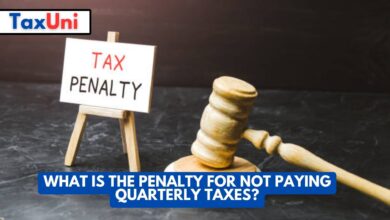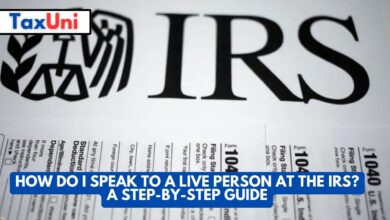How to Avoid a Tax Penalty?
When you don't file a tax return on time or pay what you owe in a timely manner, the IRS often charges penalties. This article will help you understand the tax code and avoid tax penalties from the IRS.

Penalties from the IRS are a big deal and serve as a deterrent to voluntary compliance. The IRS states that the primary purpose of penalties is to discourage tax noncompliance. If you don’t file a tax return or pay the tax you owe on time, you can be hit with a failure to file a penalty of up to $450 or 100% of the tax shown on your return (whichever is less). In addition, you can be charged a failure-to-pay penalty of 0.5% of the amount of the unpaid tax for each month (or part of a month) that the tax remains unpaid, up to 25%.
Failure-to-File
If you want to avoid IRS penalties, filing accurate returns and paying on time is best. However, sometimes things don’t go according to plan. You may face penalty and interest charges if you forget to make a quarterly estimated payment, miss a filing deadline, or bounce a check to the IRS. But you can minimize the impact of mistakes by knowing what kinds of penalties the IRS imposes and how they are calculated.
If you file a return by the deadline, you can avoid the failure-to-pay penalty and make timely tax payments through paycheck withholding or estimated quarterly payments. You can also get the penalty removed if you’re in one of the few circumstances the IRS considers reasonable cause for not paying on time (as discussed below).

Underpayment of Estimated Taxes
There are several ways to avoid this penalty, but most are based on estimating your future income for a year and matching it with your expected tax withholding and refundable credits. The IRS also provides a worksheet (Form 2210) that can help you figure your underpayment penalty. There are selected circumstances in which the IRS will waive your estimated tax underpayment penalty.
You can reduce the risk of this penalty by increasing the tax amount withheld from your paycheck or by making quarterly estimated payments. This is especially important for hourly workers who may have difficulty predicting their annual income. Also, it’s important to avoid bunching up deductions or mischaracterizing your income. The IRS will look at the substance of a transaction rather than the label you put on it.
Others Penalties
There are other penalties you might face that can add up quickly. For example, if you incorrectly claim a deduction or credit on your return, the IRS can charge you 20% of the amount added to your tax liability as an accuracy-related penalty. You can also be charged a penalty of up to $1,100 if you make multiple mistakes on your return that result in additional tax owed.
If you’re facing an IRS penalty, it’s best to contact a tax attorney immediately. The penalties from the IRS can add up fast and be very costly if you don’t resolve them promptly.





